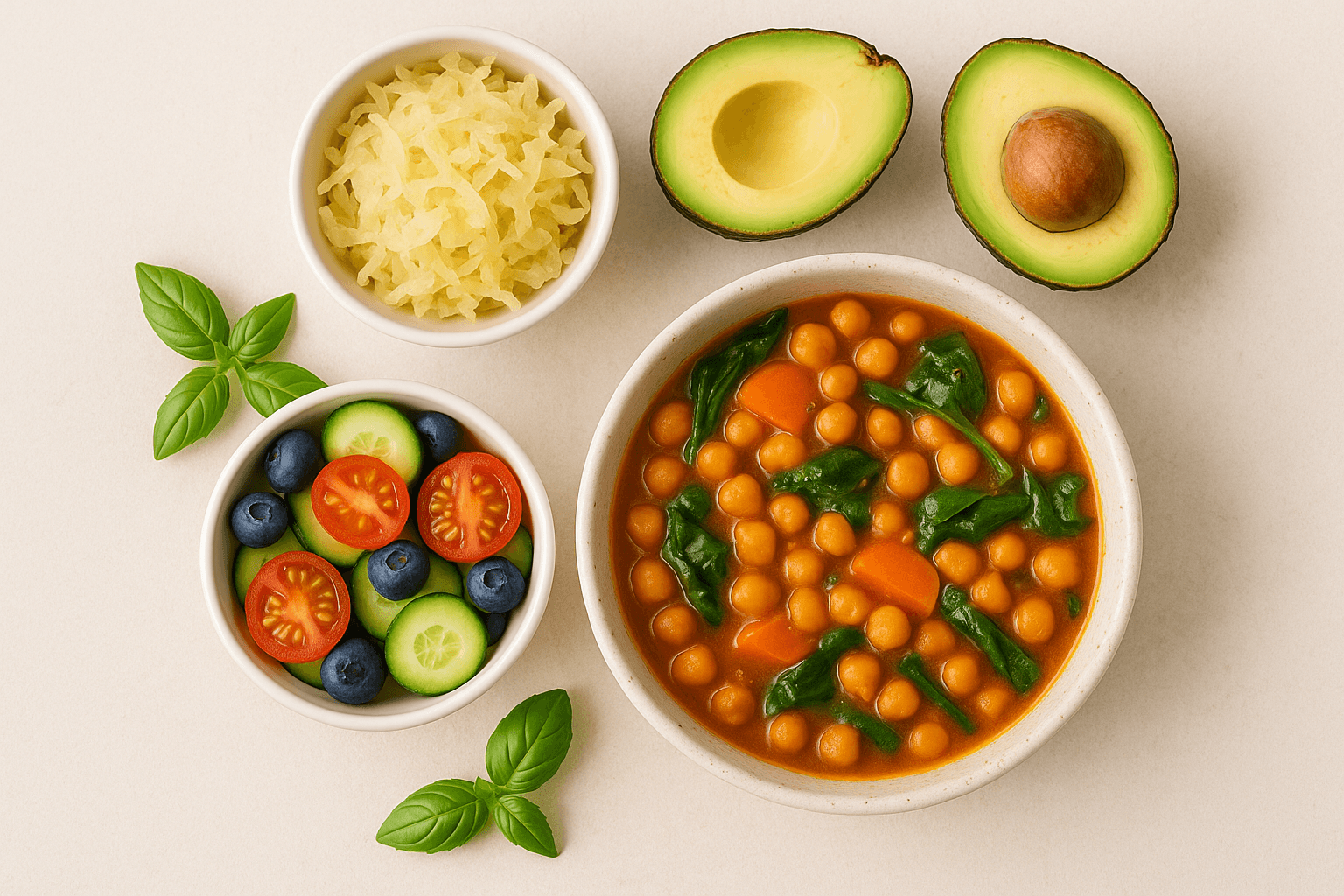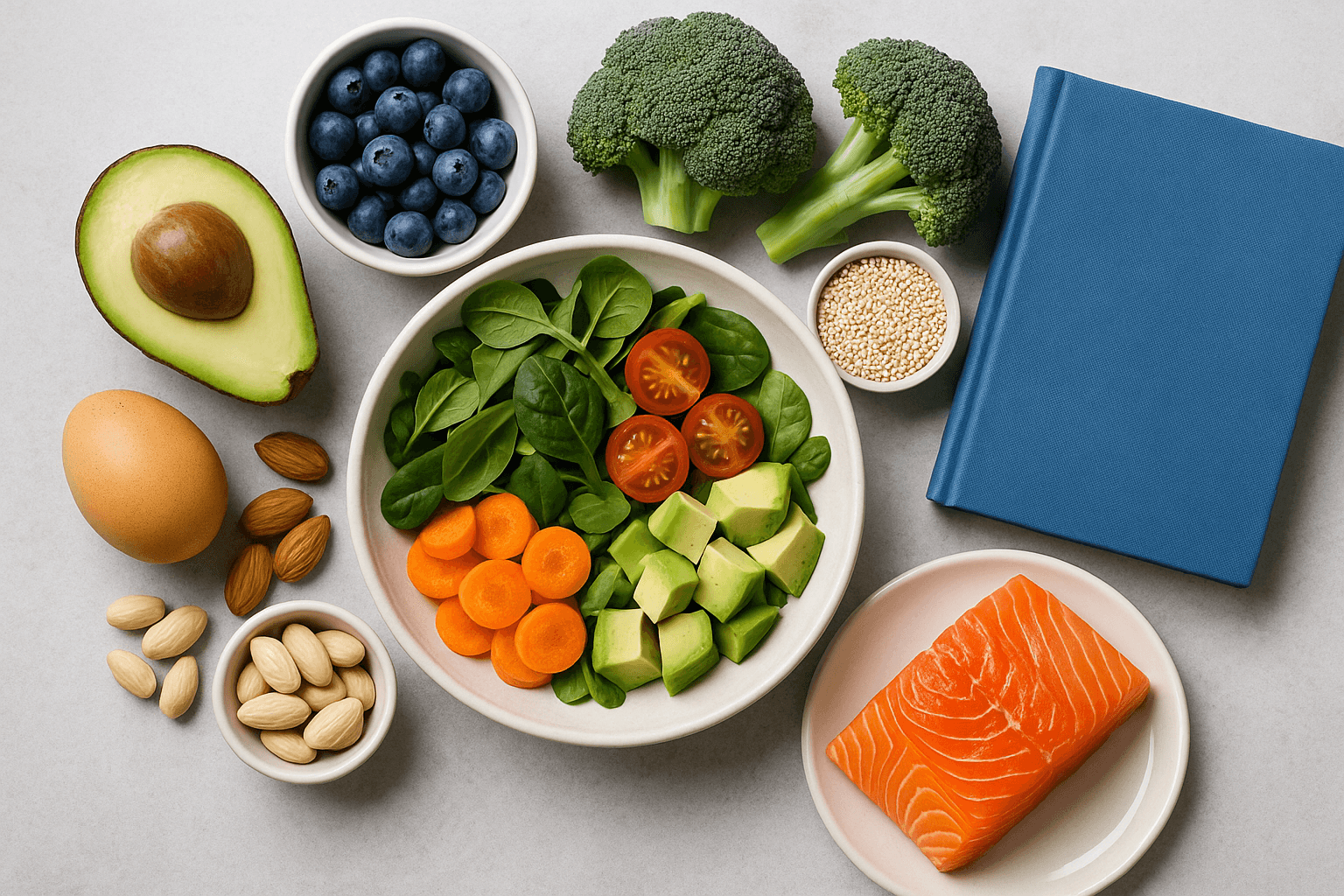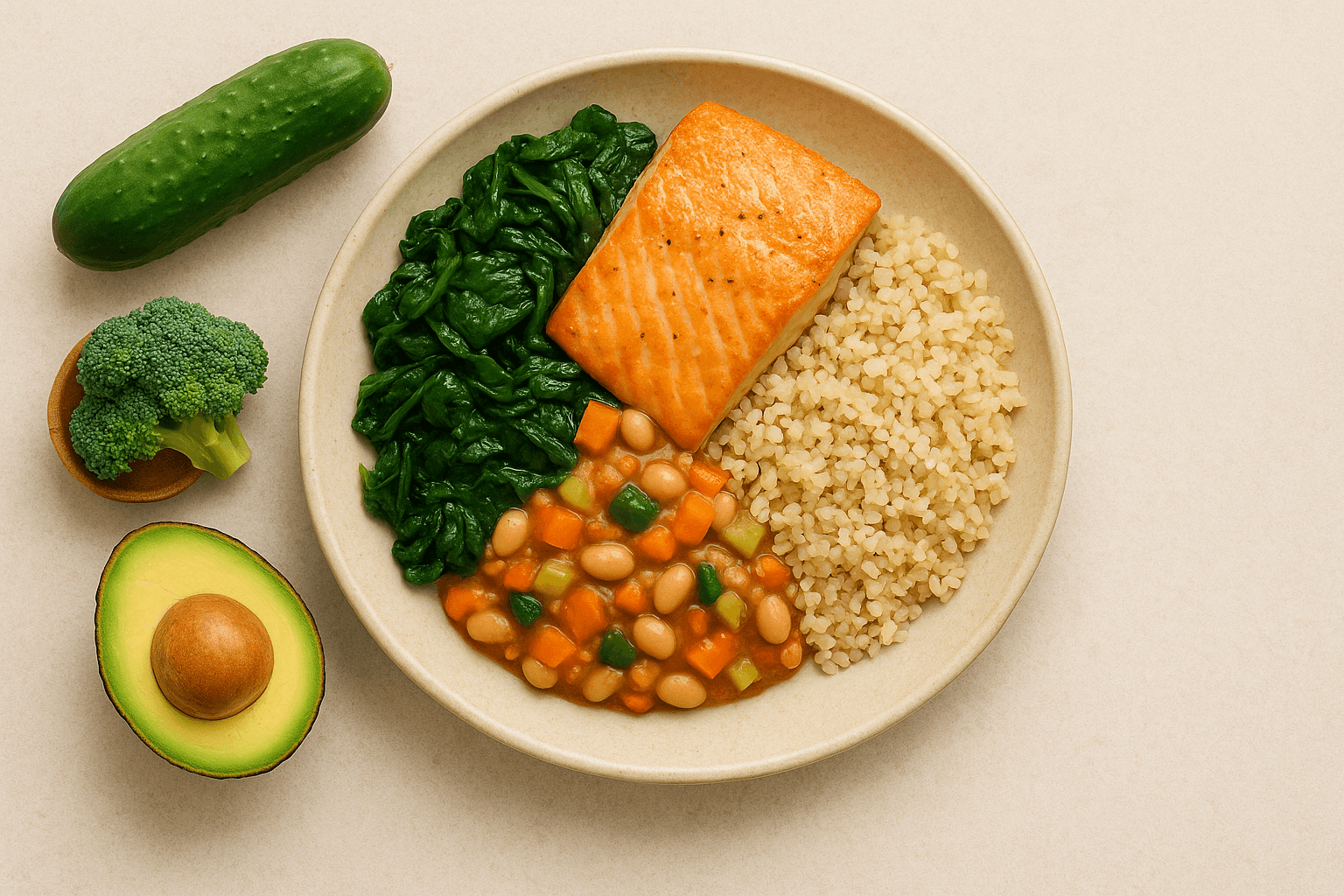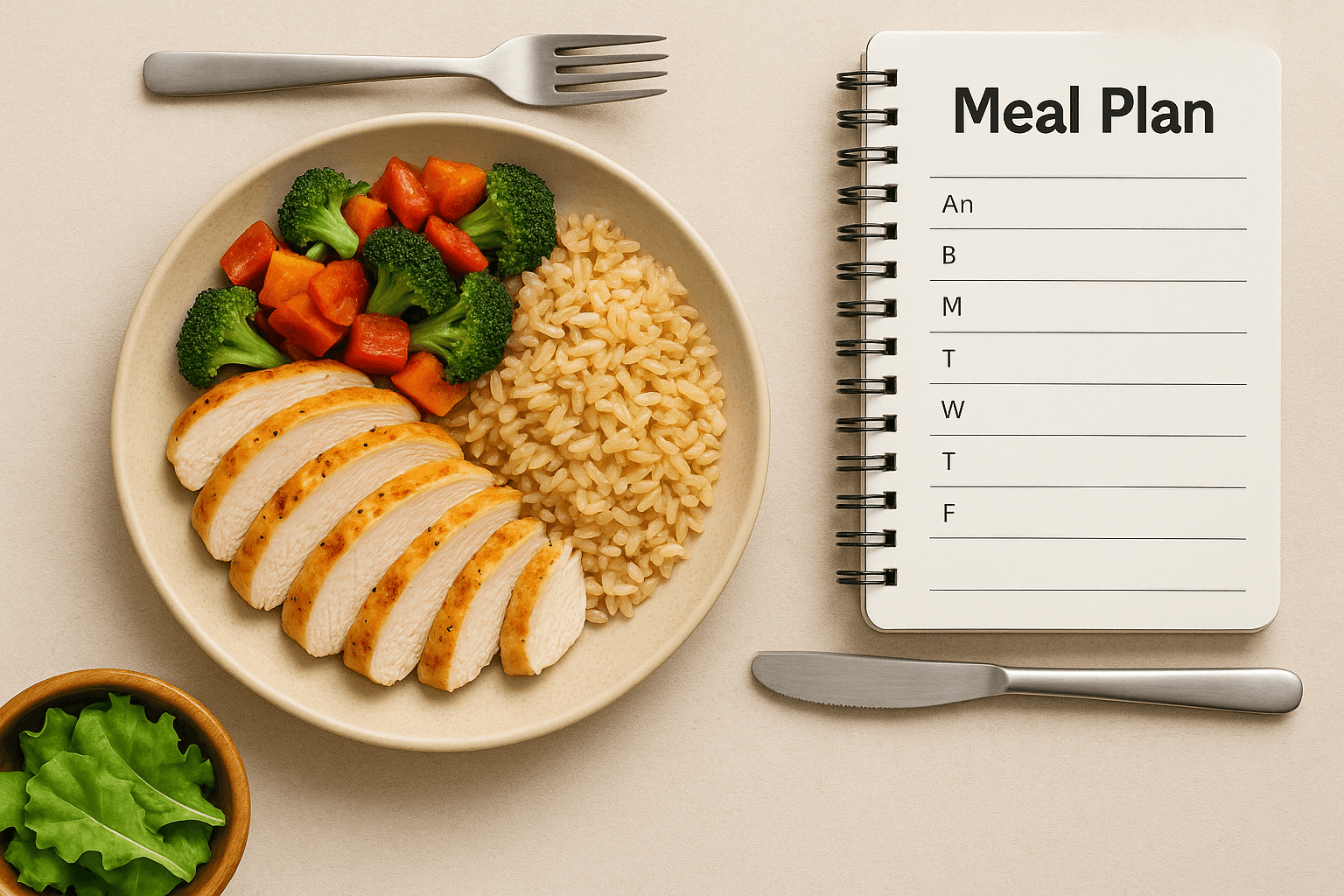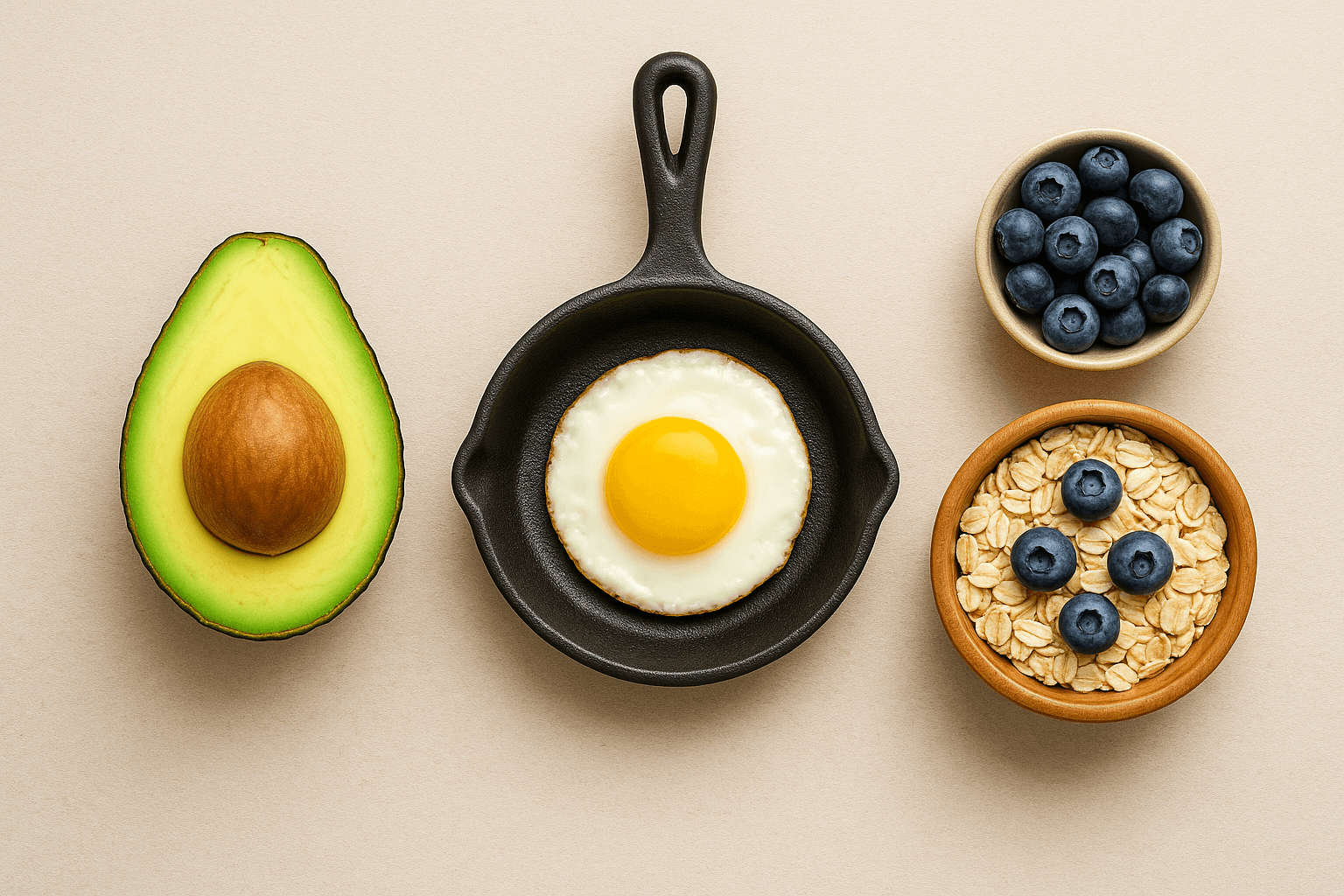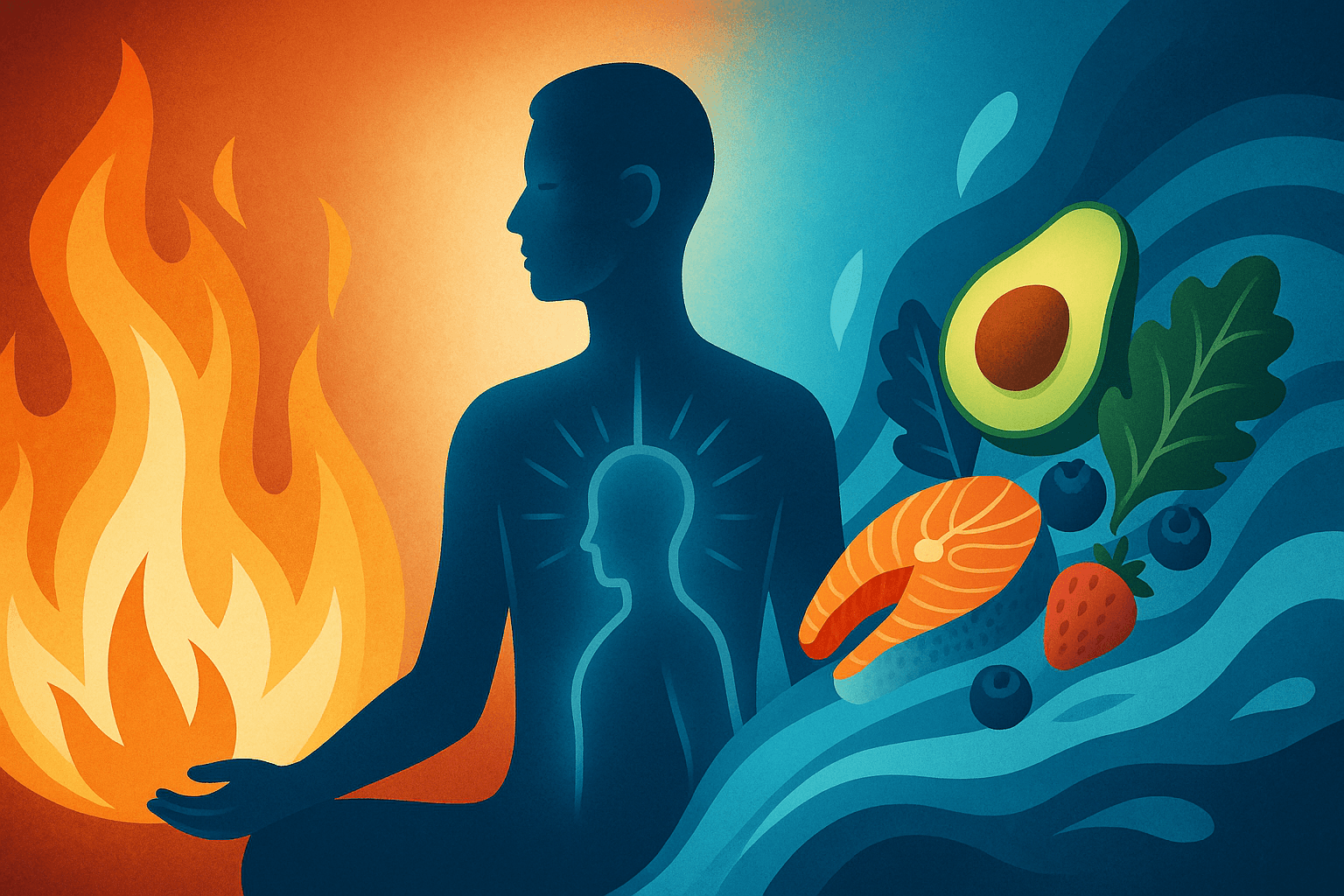Healthy Eating 2.0: Busting Myths, Building Habits, and Making Nutrition Work for Real Life
Published on August 2, 2025

Healthy eating is not some trendy flash in the pan or a box that you can check off of your to-do list — it’s a lifestyle (mostly because that word sounds cool) and one that will have positive effects on every aspect of your life. Think of waking up with more energy, attacking the day with focus and feeding your body in a way that both you and it can enjoy. In a culture of chaos, fad dieting and food phobias my goal as your dietitian is to help empower you find something exciting about eating again – Eat well because it feels good — not from a place of frustration or force but rather abundance, satisfaction, better yet self-respect!
Why Healthy Eating Is So Important (Way Beyond the Obvious!)
It’s tempting to believe that healthy eating is all about getting your body into shape, squeezing yourself back into slim-fitting clothes and earning a pat on the back from your doctor. But that’s just the beginning. The fact is, each and every one of your cells relies on the nutrients you give it. The food you eat constructs your brain, runs your heart, powers your immune system and supports the millions of chemical reactions that keep everything running inside you every second.
Energy and Focus
The contrast between feeling sluggish and foggy one day, to being sharp, productive and full of zest can often be attributed straight back to your plate. Nutritious meals—abundant in slow-release carbs, high-quality protein, and healthy fats along with colorful veggies—tend to provide the brain fuel it needs for great ideas and rapid thoughts. No more slogging through endless cups of coffee or fending off the afternoon crash.
Disease Prevention
Regularly eating healthy is our best defense against the leading killers of modern times: heart disease, diabetes, cancer and stroke. A diet rich in colorful plant foods, healthy fats and lean proteins that helps to regulate blood pressure, enhance cholesterol levels and keep your blood sugar stable — while also suppressing the silent inflammation at the root of common chronic health problems.
Immunity and Recovery
Looking to recover faster from colds, heal more quickly and fight infections? Vitamins, minerals and antioxidants in fruit, vegetables, nuts and seeds supercharge your body’s defense system. The zinc in pumpkin seeds, the vitamin C in citrus and the beta-carotene in carrots have unique roles to play when it comes to defending against a hit.
Mental Health and Brain Function
It is not only your body that thrives. Healthy food can have a positive impact on your mental health, mood, memory and outlook. Omega-3s from fatty fish, chia seeds in moderation help regulate emotions and fight depression. Fermented foods, fiber and a variety of food keep your gut bacteria happy — a straight shot to better brain health and emotional stability.
Longevity and Healthy Aging
Where it concerns health, eating what is good for you should be used as a forever investment. The habits you create today prepare the ground for decades of mobility, independence and vibrant living. A diet that promotes strong bones, flexible joints and clear vision is the cornerstone of active, fulfilling years—at any age.
And remember: It’s not about any one “perfect” meal or individual “superfood.” These little choices add up, and collectively they have a huge ripple effect on the direction of your future.
The Science-Backed Basics: How to Build a Balanced Plate
Healthy eating is much less about what you eliminate from your diet and more about what you add to your plate. Here’s how to formulate meals that meet all those objectives: nutrient-dense, tasty, and genuinely satisfying.
The Plant Half
Vegetables and fruits are nutrition’s rock stars; they are not only high in minerals and vitamins but also full of phytonutrients that aid to minimize inflammation, scavenge reactive oxygen species and sustain every function of your body.
Green: consume often — spinach, kale, broccoli are great for bones, detoxification, and immunity. Red & Purple Group: full of antioxidants, good for the heart and brain — berries, tomatoes, and beets. Oranges & Yellows: carrots, squash, and citrus for eyes, immunity, and skin. Ensure that a meal contains at least two or three every day in various hues that are nice to your body.
The Smart Carb
Carbohydrates are critical for fueling both your muscles and mind, but the sort you choose has an impact on how well they work.
Whole grains: oatmeal, brown rice, farro, quinoa provide fiber, vitamins, minerals, and starch that digests slowly to help you feel fuller and even your blood sugar. Beans, lentils, chickpeas: add protein as well as prebiotic fiber. Highly processed carbohydrates, such as white bread, pastries, biscuits, and sweet drinks, add calories with little benefit and cause rapid fluctuations in energy. Aim for at least one whole grain source per day.
Fruits and Fats
The time when fats were feared is over. Fats are crucial for the creation of neurons in the brain and the development of hormones, as well as for the assimilation of vitamins A, D, E, and K.
Best choices: extra virgin olive oil, avocados, nuts, seeds. Butter, cream and processed meats can be occasional treats rather than everyday staples. Just a sprinkle of nuts in your salad, an avocado slice on toast or some roasted veggies and olive oil make already-good meals nutritional superheroes.
Power Up With Protein
You need protein with each meal to help you build and repair muscle, support immunity, stay satisfied between meals.
Plant proteins: Beans, lentils, tofu and tempeh have gotten a lot of love lately — not only because they’re good for you but also help the planet. Animal-based proteins: Chicken and turkey (white meat from the bird) should be your first choices, but eggs, Greek yogurt or seafood also work well. An occasional lean cut of red meat is fine if portions are kept in check. Mix up your sources and try plant-based meals a couple of times per week — you’ll get more variety, nutrients wise, and find some other favorite dishes.
Don’t Forget Fiber
Fiber is your digestive system’s best and most steadfast friend — but it can be so much more.
It keeps you regular, lowers cholesterol and controls blood sugar; because high-fiber foods take more effort to chew, they fill you up longer. Sources: Fruits (with the skin!), veggies, whole grains, beans and lentils, nuts, seeds. Increase your fiber gradually with lots of water so your body can adapt comfortably.
Correction: Debunking the Biggest Myths of ‘Healthy Eating’
Misinformation about nutrition is everywhere. Now, let’s clear the air with some real talk:
Myth 1: “Carbs make you fat.”
Nope! Real, whole-food carbs are fuel for energy and endurance, not the fat-storing line item some would have you think. It’s refined sugar-laden foods (like white bread, soda and cookies) that will get you into trouble — not brown rice, beans or apples.
Myth 2: “Fruit is too high in sugar.”
The sugar in whole fruit is packaged with water, fiber, vitamins and powerful phytochemicals. People who eat fruit tend to have lower rates of weight gain and even a reduced risk of diabetes.
Myth 3: “You have to eat perfectly.”
Perfection isn’t the goal—consistency is. What you eat on most days counts far more than any occasional treat. Success is all about building better habits, not beating yourself up over lapses.
Myth 4: “Gluten-free is healthier, for all people.”
Gluten-free is a must for those with celiac disease or intolerance, but whole grains that contain gluten are mighty sources of nutrients and fiber.
Myth 5: “Healthy food is tasteless.”
This couldn’t be further from the truth! Draw on spices, fresh herbs, citrus and full-flavored sauces for memorable meals bursting with flavor.
Healthy Eating in Real Life: Cheat Sheet
Meal prep for success:
Dedicate a couple of hours each week to chopping up base veggies, batch cooking grains or prepping proteins. Prepped foods are the key to lightning-fast, good-for-you weeknight meals.
Smart snacking:
Keep easy options in the kitchen: washed fruit, cut vegetables, roasted chickpeas, plain yogurt with berries, or a handful of nuts.
Eat mindfully:
Ditch screens and distractions. Savor flavors and check in with hunger and fullness. Mindful eaters are more satisfied and less likely to overeat.
Shop with intention:
Always have a grocery list. Focus on perishable foods from the perimeter of your store, and make only minimal stops down processed snack aisles.
Embrace treats—guilt-free:
There is a place for all foods. Eat dessert or your favorite comfort dish (in moderation), savor it, then move on. No guilt. Tomorrow isn't a "new start."
Feeding For Objectives And Stage Of Life
Kids and Teens: Keep it cheerful and vibrant. Include them in meal prep, serve a variety of foods and avoid pressure or “clean your plate” battles. Active Adults: Prioritize protein and quality carbs to fuel workouts and aid recovery. Fill half your plate with veggies for lunch and dinner. Busy Professionals: Batch-cook meals, eat leftovers creatively, prepare grab-and-go options (like boiled eggs or trail mix). Senior Adults: Focus on calcium, vitamin D and fiber for bones, muscles and immunity. Eating together in a social setting can lift mood and appetite.
The Joy of Learning, Living, Creating, Too!
A nice meal, at the end of a long day, should never feel like punishment. The habits that last are based on pleasure—sharing good food, inhaling fresh herbs, or comfort in your favorite soup. By cooking at home, you control the ingredients, learn new cuisines and turn eating into self-care. Try new recipes, rediscover family favorites in a lighter and more nourishing way.
Remember: pleasure, connection and satisfaction are not “extras” — they contribute to long-term success.
Final Word: Baby Steps, Big Impact
Healthy eating isn’t something you achieve; it’s a constant process that takes place one meal, one snack, one grocery trip at a time. Begin with changes that seem easiest and most exciting—maybe a new veggie each week, planning your breakfasts, or swapping soda for water. Every small win is worth celebrating. Consistency will take you farther than perfection ever could.
The more attuned to your body you become, the less guilt factors in; eating well starts to come naturally. Nutrition is nourishing, not punishment. Get lost in the adventure, stay curious and be kind to yourself!



